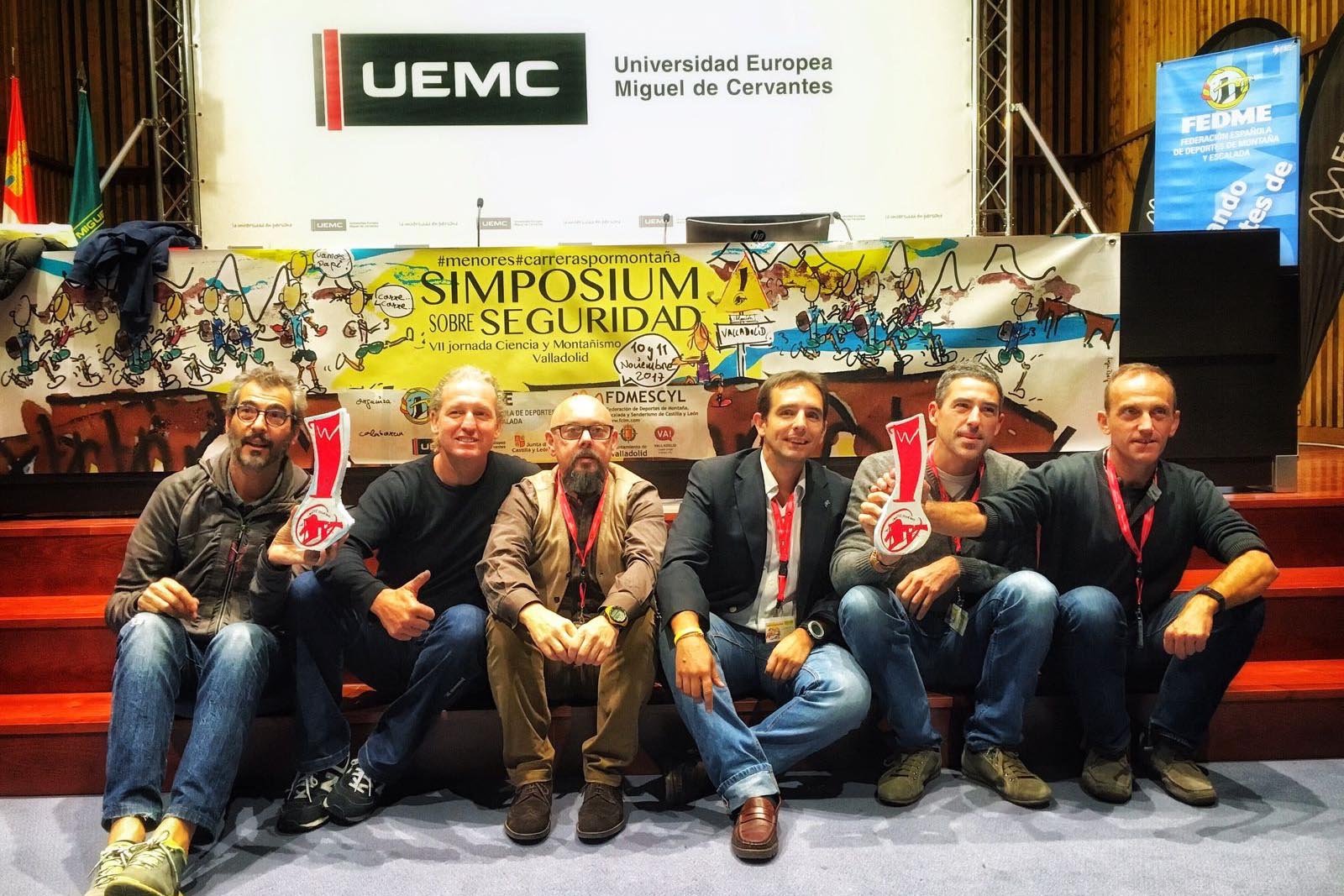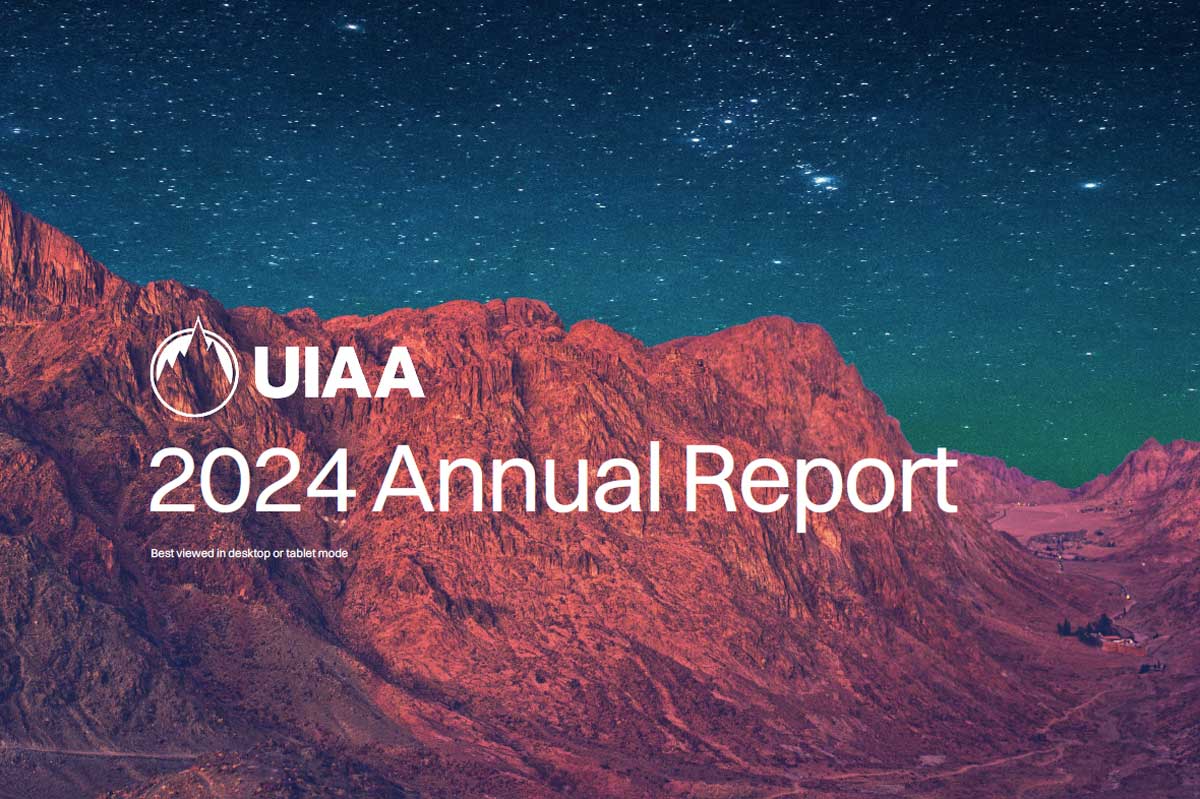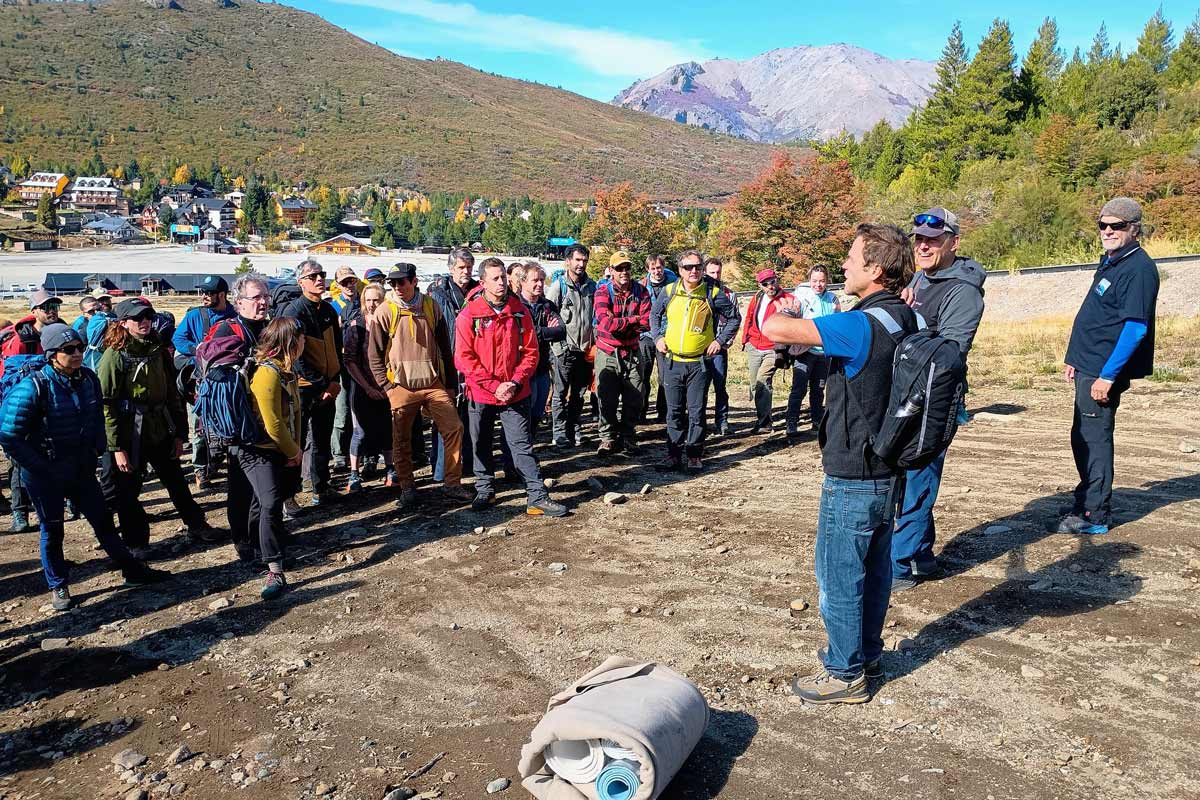Over last few years, FEDME (Federación Española de Deportes de Montaña y Escalada), a full UIAA member, has reinforced its commitment to mountain safety, introducing a number of innovative and extensive measures to expand knowledge and consciousness about mountain safety on national level. One of their recent successes saw the publication of a detailed report about tests carried out on anchors in the marine environment. Here is their story.
In January 2015, the Board of Directors of FEDME approved the creation of a dedicated Safety Área. The aim of this sector is to “establish the prevention policy and the necessary mechanisms for the improvement of safety in sport”. This prevention policy aims to generate a culture of safety that favours the detection of risks, promotes the establishment of personal preventive measures and generates synergies that are reflected in society in general.
The structural model implemented establishes three areas of action with their respective managers: training, communication and a Mountain Safety Observatory. These three areas, which work in a coordinated way are nourished by the volunteer work of these managers, with a specific focus on reducing accidents. The President is Alberto Ayora, an expert on safety issues and author of several books about risk management.
The Área organizes an annual meeting with the safety managers of the territorial federations. Likewise, it promotes the “Advanced Course on Safety in Outdoor Activities”, training aimed primarily at people responsible for safety in the regional federations, with content formation and practices dedicated to Leadership and Risk Management, Legal Responsibility and Outdoor First Aid. With the aim of providing greater visibility about the issue, the FEDME Safety Prize was created in 2016, as recognition of outstanding work in the service of mountain safety.
The Training Área has the short-term objective of homogenizing concepts and specific topics of prevention and safety within the Federation. The principal task of the responsible people in the Training Area, Alberto Sánchez, in collaboration with Manolo Taibo, is to study the current situation of our sports from a preventive perspective. They provide training tools, best practices, a risk evaluation matrix, hazard and risk assessments, guides for different disciplines and levels, both for the basic and the high performance athlete, including their technical staff. This work is developed with the other areas involved (Spanish High Mountain School, Scientific Advisory Council, Canyoning, Races, Trails, etc.).
 The Communication Área is the open window of the Área to the wider public. It seeks not only to promote the work of the Safety Área, but create a two-way communication with the belief that the project can be enriched with the contributions of all the individuals and entities that have something to say about mountain safety. The work in this area is extensive comprising many micro training videos. The so-called “Lessons Learned”, analyzes accidents or incidents of interest, with information provided by the protagonists and analyzed by the experts. This serves as direct teaching to all practitioners of mountain sports and is published in a specialized mountain magazine. Dually it provides the content for the FEDME mountain safety blog, as well as social media, as the best way to transmit news, warnings and alerts of an urgent nature.
The Communication Área is the open window of the Área to the wider public. It seeks not only to promote the work of the Safety Área, but create a two-way communication with the belief that the project can be enriched with the contributions of all the individuals and entities that have something to say about mountain safety. The work in this area is extensive comprising many micro training videos. The so-called “Lessons Learned”, analyzes accidents or incidents of interest, with information provided by the protagonists and analyzed by the experts. This serves as direct teaching to all practitioners of mountain sports and is published in a specialized mountain magazine. Dually it provides the content for the FEDME mountain safety blog, as well as social media, as the best way to transmit news, warnings and alerts of an urgent nature.
José Ignacio “Rizos” Amat and Jorge Delgado, responsible for Communication, are also working on the launch of a global education campaign on prevention and safety in the mountains. Under the slogan “Pay attention!” this campaign aims to provide a wake-up call on safety guidelines in the practice of mountain activities, which through media distribution and that of private entities makes a positive impact on the wider world.
The objective of the Mountain Safety Observatory is to determine and quantify the accident rate that occurs in Spain and analyze its causes. This data processing can be used to effectively organize the preventive policy of FEDME and any risk management in mountain activities. The head of the Safety Observatory, Iñigo Ayllón, has perhaps an arduous task, since it requires starting from scratch in both methodology and approach, both within the FEDME and within insurance companies or institutions and public administrations. Particularly complex is the process of collecting data from the numerous and different regional federations, institutions dedicated to the rescue, insurance companies, and administrations. No less complex, is homogenization of the data itself.
Currently, the most important effort of the Mountain Safety Observatory, are the steps that are taking place with the Higher Council of Sports of Spain, with the aim of forming a national organization with the rescue services, together with consolidating a homogeneous system of collecting accident data in the natural environment. Also noteworthy is the work with the Consular Emergencies Unit of the Ministry of Foreign Affairs, in coordinating the actions to be carried out in international emergencies, as well as defining preventive mechanisms with the collaboration of the Diplomatic Information Office.
In addition to the work in the central core of the FEDME, the Safety Área offers advice to regional federations, member clubs and the rest of the federative areas; as well as all those bodies and public or private entities that request their collaboration.
In this endeavour, members of the Safety Área have participated as a jury in safety and design competitions in mountain products. They have collaborated with national youth associations on several occasions. Additionally, they have been speakers at law conferences, winter safety or risk prevention and participated in the development of a new prevention tool for the planning of activities. Finally, together with the EEAM and the company ASAC Training, they have conducted an extensive study on anchors in the proximity of the sea. This document ‘Report of Tests Carried Out On Anchors In the Marine Environment’ can be found here.
Another important aspect of the tasks of the Safety Área is the work carried out by its members individually, which always reflects the work, membership and vision of the Área. It is worth highlighting the publications created during this period. The book “Prevention of Risks for Collectives in Mountain” by Manolo Taibo, the publication of José Ignacio “Rizos” Amat, whose title is “Hidden Dangers in Mountain”, highlighting human error as a precursor to mountain accidents and strategies to improve decision-making. Finally a thesis of Alberto Sánchez “Mountain accidents. Claims, rescues and preventive actions of mountain sports in Spain “.
Of special interest to the Safety Área is the strengthening of contacts and relationships with public administrations in collaboration of prevention campaigns and promoting awareness about good sports practices. It is also studying how to participate and integrate the Safety Área in the Technical Subcommittee AEN / CTN 147 / SC 2 “Sports, playgrounds and other recreational equipment” of the Spanish Association for Standardization and Certification (AENOR), as well as in the Subcommittee on Risk Management that is going to be created in this entity.
During these two short years of life, both the functions and the work dynamics of the Safety Área have been established. Its mission, since it is not directly executive, is more a long-term and not always tangible. Therefore, its results are not necessarily immediate and visible. It is precisely in these small and sometimes invaluable advances, in which the results of the Área’s effort can be appreciated. Currently, FEDME has a high percentage of regional federations that have already appointed and trained a safety officer, and in several cases have their own autonomous safety areas. This is a job that has taken time and effort, and is the result of a message that is slowly crystallizing among individual clubs. An emphatic demonstration that the work of the FEDME Safety Área is leading to cultural modification in the habits of mountain sport practitioners.
Further details:
UIAA & mountain safety
FEDME
Main image: FEDME Safety Area team. From right to left. Alberto Ayora, Iñigo Ayllón, Alberto Sanchéz, Manolo Taibo, José Ignacio Amat “Rizos” y Jorge Delgado.



